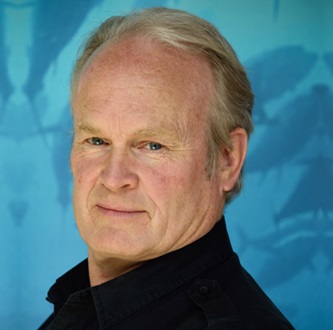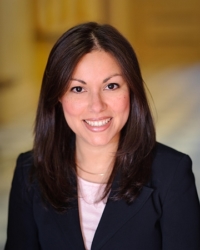Who inspires you?
Who pushes this industry to be bigger and better each and every day?
Whose creativity spurs innovation in others?
WholeFoods asked, and our readers responded. This inaugural listing of WholeFoods
Magazine Who’s Who honorees is the result.
For the first time this year, WholeFoods Magazine is honoring outstanding individuals from natural products manufacturers and suppliers who are innovative and advance this industry in positive ways. Earlier this year, we asked for nominations of those deserving to be Who’s Who honorees and received an excellent pool of candidates. We also sought input from several trade associations about industry members who have done amazing things this year. A special thank you to all those who nominated individuals for the award, including the Organic Trade Association, the American Herbal Products Association, the United Natural Products Alliance and the Independent Natural Food Retailers Association.
The number of accomplished industry members could have certainly been in the triple digits, but we decided to honor just five standouts from our nomination pool. Among them are true industry visionaries, product development geniuses and major retailer supporters. But common threads among them all are their love for this industry and their commitment to make this world a better place.
We feel their stories are truly inspirational, and will launch us into our January 2015 Person of Year coverage. We have some ideas cooking, but if you’d like to nominate someone who has made an incredible impact on this industry over the past year, email your suggestion to:
KaylynnEbner@wfcinc.com.
And now, without further ado, let’s learn about the honorees.
—The Editors
Mastering Vertical Integration: Roland Gahler
A few decades ago, a four-year-old boy found a bean seed on the floor of his kitchen. He planted the seed, watered it and left it to grow. After a short time, the boy was amazed at the result: it had sprouted all on its own.
The boy developed a great appreciation for what the earth can do, and grew to become an innovator in the supplements market. “I was enamored from that time on that it was so simple to grow and get so much in return. That drove me in my life until this day,” states Roland Gahler, chairman and owner of Natural Factors Nutritional Products, headquartered in Coquitlam, BC, Canada, with U.S. headquarters in Monroe, WA.
Roland’s father, Swiss herbalist Jacob Gahler, founded the company in the 1950s and since 1972, Roland Gahler, has refined it, improving the business with modern technology and continuing to deliver high-quality, sustainable, well-researched products to shoppers.
 Roland Gahler Speaking at a gala in Canada where he introduced the Whole Earth & Sea line. Roland Gahler Speaking at a gala in Canada where he introduced the Whole Earth & Sea line. |
Farm Fresh Supplements
For Natural Factors, the integrity of its products starts at the roots—literally. The new Natural Factors LEED Gold-certified facility near Seattle, WA, has earned the respect of many industry members. “It’s a very modern facility and we were able to get the farm right across the lake from our facility,” states Gahler, adding “The ecosystem is what’s respected about the farm.”
The farm where Natural Factors grows crops for its line is somewhat isolated, situated in the Okanagan Valley of British Columbia and protected from sources of pollution and contaminants. It is not only certified organic, but ups the ante by not using any sprays (even those allowed under organic rules). “We hand weed and we control it through plowing and things like that,” says Gahler.
Lakes near the farm feed meandering creeks that run through the farmland in a valley, and beehives are kept to help pollinate the crops. “What’s lovely about it is that in the spring, millions of froglets come out from our ponds and creek and eat the pests,” he states. He also speaks of a lake with ducks and otters. “We keep it as a preserve. We don’t want anything to interfere with the life that lives on the land.”
This farm is kept and loved with the heart of the little boy who planted a seed in his garden decades ago, who never forgot that if you respect the earth and take care of it, the soil will provide 10 and even 100 times more than what you put in. “We give a little to the ecosystem, and we get back a lot. But, we’re not looking to get back everything we invest. The earth is perfect, and the seed is perfect…our goal is not to interfere with this amazing process,” says Gahler.
The land is also properly rotated and kept so as to preserve the soil’s fertility for years to come. “Our movement is to do the very best we can to support what the earth has been doing to save our lives,” Gahler states.
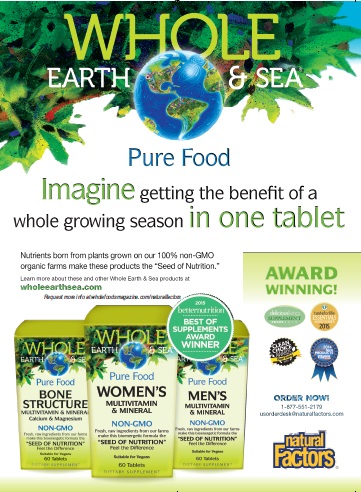 One may forget that these are not the practices of farmers selling produce on a farm stand or at retail; Gahler’s 1,000 acres are intended to create high-quality standardized extracts of herbs and other selectively hand-picked plants for the development of dietary supplements. This truly sets Natural Factors apart, as well as the man that insists the company continues to farm in this manner. “I don’t know of another supplements manufacturer that’s integrated the way we are, to the extent that we are,” says Gahler.
One may forget that these are not the practices of farmers selling produce on a farm stand or at retail; Gahler’s 1,000 acres are intended to create high-quality standardized extracts of herbs and other selectively hand-picked plants for the development of dietary supplements. This truly sets Natural Factors apart, as well as the man that insists the company continues to farm in this manner. “I don’t know of another supplements manufacturer that’s integrated the way we are, to the extent that we are,” says Gahler.
Natural Factors recently developed the Whole Earth & Sea raw, whole foods supplement brand, and many of the components are grown on the firm’s organic farms and minimally processed with fresh materials. “But to make sure we have enough supply, we also work with really fine organic farmers in the area,” Gahler explains. Not only does this secure the supply in case there’s a crop failure, but Gahler says he also likes to encourage organic farming in the area.
Beyond farming, Gahler is keen on ensuring every aspect of his line—harvesting, extracting, packaging and educating—is done with care and to his high standards. Natural Factors even owns its own laboratories, distribution centers, softgel/tableting equipment and more. Few companies can say they control their products from seed selection to shelf in this manner.
There are far easier ways of running a supplements company, but Gahler chose a different path. “I never wanted efficiency to replace love,” Gahler states.

|
|
| Natural Factors facility in Monroe, WA |
Retailer Connection
Gahler is also a large proponent of supporting and bolstering small retailers. He is planning to roll out an exciting new venture that will bolster natural products stores, beginning in Canada. “Many smaller vendors are afraid of their future, so I had to make a very bold move to start a bit of a revolution. And that process is going to begin in February with a presentation about the start of what we’re going to do to support natural food stores,” he explains.
Reeling in a Better World: Duncan Berry & Kipp Baratoff
Imagine going to the store to buy wild-caught salmon, and instead of a beautiful display of fresh fillets, there’s a sign saying, “Out of Stock Until Further Notice.”
|
|
The oceans are some of Earth’s most valuable resources, yet healthy habitats needed for a healthy seafood supply have been slowly deteriorating. In fact, the United Nations recently said humans might be forced to stop eating seafood by 2050 if they do not change their ways. “The healthy population of seafood that we all enjoy eating may not be there for future generations if we don’t enlist consumers today to be agents of change with us as a company,” says Duncan Berry, CEO and co-founder, of Fishpeople.
This was part of the impetus for Berry and Kipp Baratoff, CFO and co-founder, of Fishpeople, to found their company in 2012. Fishpeople makes comfort seafood meals, seafood entrée starters, soups and frozen seafood fillets. Berry, Baratoff and the Fishpeople team have done remarkable work to put “transparency” at the centerpiece of its business on many levels. The result is a unique company that is improving coastal communities, bettering the ocean and making shoppers increasingly aware of their role in improving the ocean’s environment.
Sea Changes in the Grocery Aisles
For Berry and Baratoff, a key to their strategy is abiding by this philosophy: “Business is a wholly owned subsidiary of the environment.”
The firm starts by being highly selective about which species it offers, namely those that “can take the predatory pressure and relieve pressure on those that can’t,” Berry explains. The company presently focuses on just 11 species (like wild albacore tuna, wild Keta salmon and wild Pacific rockfish), even though more than 130 species could be taken from the firm’s preferred ports in Oregon, Washington and Alaska.
But, there’s a very human side to the Fishpeople story, too. Berry states, “What drives us every day as a B Corp are the communities that depend upon the sea.” U.S. coastal communities, he says, are largely located in poverty zones, but Berry and Baratoff feel it should not be that way. Part of Fishpeople’s strategy is to “enrich coastal communities by keeping the value of our seafood here by making value-added products,” Berry explains. Fish are harvested domestically and fisherman receive fair compensation for their efforts.
Fishpeople’s connection to these communities is deeply personal. States Baratoff, “We endeavor to know the name of every fisherman that catches the fish that we put in our products.”
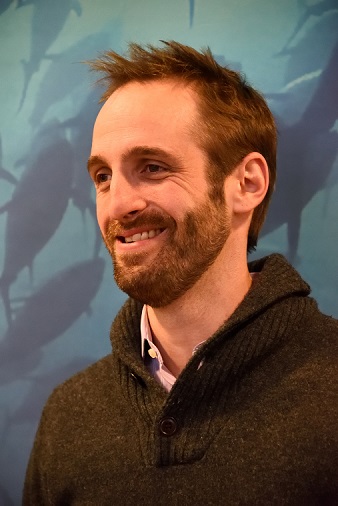 Kipp Baratoff Kipp Baratoff
|
To get different parts of the supply chain to work together and communicate with each other involves great “technical muscle and willpower,” says Baratoff. But, he feels their efforts are more than worth it to keep the value of seafood in local communities and “help the shopper connect with his/her food.”
This point hits on another important facet of Fishpeople: the company believes transparency is the future of food, as more and more shoppers value knowing exactly where their meals come from. Says Baratoff, “We’re trying to bridge the gap between our industry and our consumers in order to create safety and trust in a way that they haven’t had before.”
To acheive this transparency, Fishpeople has developed a “Track Your Pouch” feature that enables shoppers to enter a code found on product packaging and connect with the people behind every ingredient. This was no simple feat. Simply building relationships with the fleets that the company sources from and collecting the necessary information was a challenge. Sometimes, Berry and Baratoff asked for details that no one had requested before. “We promised them to not only take that information and do something good with it, but also to honor and provide integrity and respect for their efforts as hunter–gatherers,” states Baratoff.
As the company continues to scale up, the complexities of tying together this data with a batch code and also a website is not getting easier. But, that isn’t stopping Berry and Baratoff. Says Berry, “The world didn’t need another seafood company—unless it was a different seafood company.”
Adds Baratoff, “It’s been fun to kind of change the industry.”

On the Menu
The taste of the chef-inspired Fishpeople line is also unique in terms of flavor, and really speaks to foodie trends.

|
|
| Wild Crab bisque |
Baratoff loves the Seafood Chili Blanco Soup, Red Curry Coconut Bisque and Thai Coconut Lemongrass. Berry enjoys these varieties as well, and says of the latter, “We worked really hard to get the Thai flavor.” He also leans toward the firm’s new Wild Crab Mac ‘n Cheese as well as the Smoked Oyster And Bourbon Chowder.
But, at the end of the day, Berry and Baratoff don’t want Fishpeople to just be a food company. They want to bring consumers into the brand, not keep them on the outside looking in, and invite them to join Fishpeople in nourishing coastal communities and the ocean.
A Passion to Help Retailers and Bring Innovation to Market: Terry Lemerond
Many company presidents are great spokespeople, marketers and strategists. Our next Who’s Who honoree is well-loved by natural products retailers for not only bringing these skills to his supplements company, but also for his deeply embedded love of independent retailing and product formulation and development.
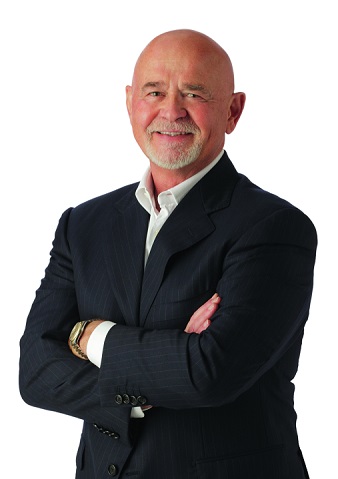 Terry Lemerond Terry Lemerond
|
Terry Lemerond, founder of EuroPharma, Inc., Green Bay, WI, lives, breathes, sleeps and bleeds natural health “It’s a huge passion of mine to make products available that are innovative and unique—and will help natural products retailers have a different position in their stores than other competitors. I want to make a difference in people’s lives,” states Lemerond.
While he understands that certain pharmaceutical drugs can save lives, he does not believe one should over-rely on them when diet and lifestyle choices can be one’s first line of defense.
Lemerond was not always sold on natural products. As a boy, he says he had a poor diet and was a “sugaraholic.” He was affected by hypoglycemia and depression, and was overweight to boot. He credits several angels for putting him on a course to bettering himself by eating more healthily and exercising more often. One was a captain in the Marine Corps who took Lemerond—a private at the time—to a nutrition store to buy supplements. He recalls, “I never knew what a health food store was; I had never seen a health food store…the experience changed my life.”
Tying Retailers and Manufacturing Together
If Lemerond could turn his own life around, he felt he could help others, too. Lemerond bought a health food store in 1969 and realized some years later that he could have an even bigger impact on people’s lives at the supplements manufacturing level. He founded Enzymatic Therapy in 1982, and sold it in 2000.
“I was absolutely lost without being involved in the supplements industry,” he says, “I was like a fish out of water without having that passion in my life to make a difference.” Lemerond then went on to found EuroPharma, Inc.
The way Lemerond leads EuroPharma is noteworthy for two reasons: his connection to retailers and product innovation. On the former, Lemerond believes that retailers are in the trenches to bring good health to communities, and supplement makers can help supply the ammunition to reach consumers. “It’s not easy,” he states. “The retailer is the key for bridging the gap between the manufacturer and the consumer…We will do anything within our power to help the retailer.”
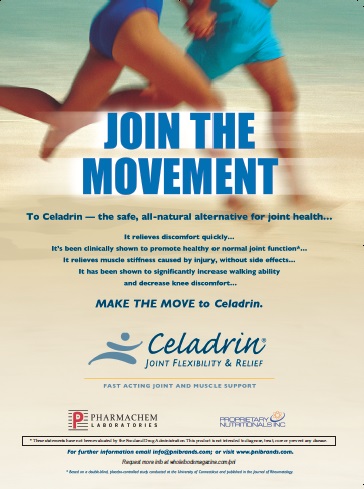 Lemerond is also very accessible to retailers, visiting natural products stores each and every month. “I’m on the road 60–70 percent of my time,” he states.
Lemerond is also very accessible to retailers, visiting natural products stores each and every month. “I’m on the road 60–70 percent of my time,” he states.
At the same time, EuroPharma has a diverse line of supplements, and many of them are quite unique. Lemerond’s colleague Cheryl Myers, chief of education and scientific affairs at EuroPharma called him “insatiably curious” and “a true innovator” for bringing numerous ingredients to the United States for the first time like standardized gingko, glucosamine and chondroitin. She also feels, “He was a driving force behind raising awareness about the health benefits of curcumin.”
But even with his focus on innovative ingredients, Myers adds that when Lemerond develops a product, “he’s more concerned with how it works in the body” and less about which “it” ingredient he can throw in to make a sale.
When asked if he had any favorites, Lemerond states, “They’re all my babies. I love them all!”
But he says BCM-95 Curcumin, is a “very special baby,” and he is proud of an omega-3 fatty acid that is one of very few not derived from oil (Vectomega). “It’s an omega-3 from the brain of salmon, so it’s very high in phospholipids and omega-3 fatty acids,” he states.
He also mentions a new release from his company: a powdered spray that helps provide quick allergy relief (FastBlock). “It’s a very unique mechanical barrier for the nasal passages,” Lemerond explains. “It forms a very fine gel in the nasal passages and blocks the uptake of airborne allergens…We’re the first to launch it in Canada and the United States.”
Lemerond feels his retail background gives him unique insight on products that will make a splash at retail. “We have a retail store—Terry Naturally. We know what the consumer is doing and what the consumer wants. Any day I’m in Green Bay, Wisconsin, I work in the health food store,” he states, adding that the business will open a second location in early 2016.
Whether it’s with his direct interaction with shoppers at retail, as a partner to retailers or as a product innovator, Lemerond intends to apply his passion about natural products to make a difference in this world.
Innovation in Plant-Based Foods: Andre Kroecher & Greg Blake
If you visit the dairy section of nearly any natural grocer today, you’ll likely find an array of dairy-free cheeses available. Ten years ago, the situation was very different. Many vegan cheeses just didn’t melt, shred or taste like a traditional dairy cheese.
Andre Kroecher and Greg Blake, vegans and co-founders of Daiya Foods, Inc., Vancouver, BC, Canada, are two innovators in plant-based foods. But what makes their story so remarkable is not only what they’ve done to push the envelope in the dairy-free cheese market. It’s also how they continue to think outside the box to bring unique options to vegans, those with allergies/intolerances and anyone else looking to avoid dairy products.
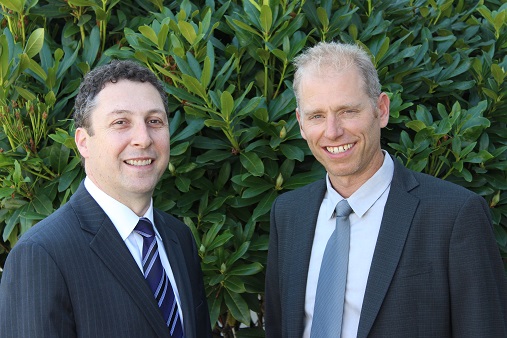 Greg Blake & Andre Kroecher Greg Blake & Andre Kroecher
|
Early Days at Daiya
Kroecher had been playing around with some dairy-free cheese recipes on his own when Blake suggested the pair team up to create the first shredded, melting, non-dairy mozzarella on the market. Additionally, the team wanted to stay away from as many allergens as it could (like gluten, egg and soy).
“Back then, there were just blocks and the reputation was that they were soy cheeses and they didn’t melt or taste very good,” says Kroecher, whose background was in product development and intellectual property.
Meanwhile, Blake had been working in computer technology and had gotten accustomed to the start-up culture and the excitement that surrounds it. “When Andre showed me a havarti-style cheese that he had been working on, I was blown away. It was really, really good,” he states. Since cheddar and mozzarella represented over 80% of the market at that time, the pair decided to focus on those varieties—banging away in their kitchens for a year until the formulas were just right.
Once the recipe was finalized, the pair approached the restaurant and food service industries. “We never expected that we had something that would take the market by storm,” says Kroecher. “We didn’t know if it was something that people would even want.”
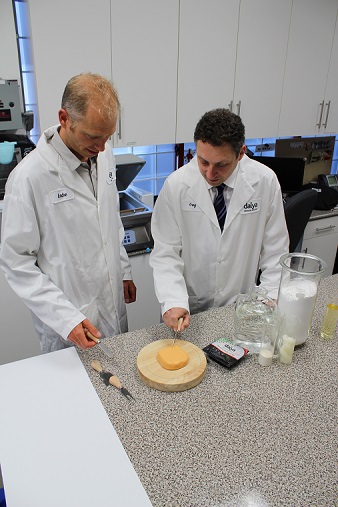
|
|
| Kroecher and Blake doing product testing |
Several influential people in the plant-based food movement like vegetarian chef Tal Ronnen took notice and the ball got rolling. The team launched Daiya—pronounced “day-ah,” a play on the words “dairy” and “Dayaa” (Sanskrit for loving, kindness and compassion)—at Natural Products Expo West 2008 with little more than shredded cheese in five-pound bags and no official retail product. Kroecher and Blake had simply wanted to attract the attention of other companies that could use the cheese in their lines. But the pair got far more than they bargained for. Attendees were wowed by the pizzas prepared at the booth with their vegan cheese, including frozen foods maker Amy’s, which decided to incorporate Daiya cheeses into its line.
Kroecher says this launch was facilitated by the advent of smart phones. “The product thrilled and excited people, and they just had to tell other people what they discovered on social media, forums and blogs. Through word of mouth, shoppers would start requesting the product at their local stores,” he states. “There was this viral spread in interest in Daiya that coincided with the outbreak of the smart phone era.”
And the innovation has kept coming.
More than Mozz
With support from retailers like Whole Foods Market behind them, Kroecher and Blake not only brought shredded dairy-free mozzarella and cheddar to consumers, but also other varieties like pepper jack shreds, cheese slices, cheese blocks (like gouda and jalapeno havarti) and cream cheese. “It absolutely took off. It was amazing,” says Blake. “From there, we wanted to roll out a much broader portfolio of cheese products…and move into adjacent categories.”
When Daiya initially sampled its cheese on a pizza at its first Expo West, attendees thought the company made frozen pizzas. When the pair felt it was time to expand outside cheese alone, a frozen pizza was their first move. “Taking this step was an important part of the Daiya dream since we developed the brand,” Kroecher states.
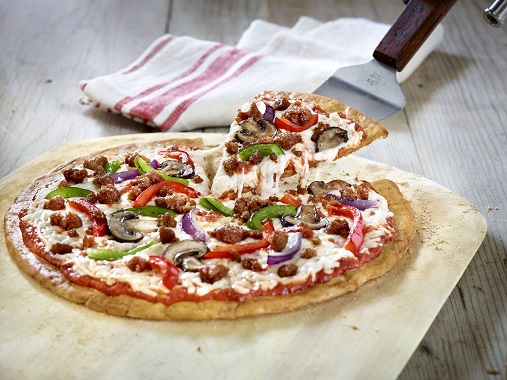
|
It definitely was not an easy endeavor, though. Blake says getting the gluten-free crust to be perfect was extremely difficult without egg. “That was really challenging,” he states.
The company has also launched dairy-free cheesecake, macaroni and cheese and yogurt. “It’s tireless work from Daiya’s research and development team to identify unmet needs among traditional mainstays and make it taste as good out of natural, plant-based ingredients…and as nutritious as possible while still being affordable,” states Kroecher. “But, someone’s got to take the risk.”
The pair teased that more unique products are in the works. The industry will have to stay tuned for what might innovate the plant-based category tomorrow.
Transparency to a T: Robert Craven
Who do you trust? What exactly is trust? How closely do you need to know someone (or something) before you can trust them? And, when does trust start to break down?
There are many questions about the nature of trust, and none are easy to answer. But one industry member who is trying to increase trust and transparency is Robert Craven, a leader in the natural products industry for the past 15 years (including the past four years as CEO of FoodState, maker of MegaFood).
“What I’ve seen is that there’s been an erosion of trust for this industry. Every year, it seems to intensify,” he states.
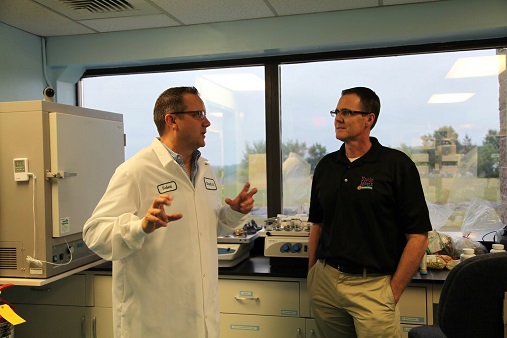 Robert Craven (left) in MegaFood's analytical lab with Matt McLean of Uncle Matt's Robert Craven (left) in MegaFood's analytical lab with Matt McLean of Uncle Matt's
|
He feels that this attrition is out of place for an industry that has a sense of community at its core and a deep-rooted commitment to health and wellness. Craven’s solution is to build transparency rather than let “fringe” industry players—who are fine with low-quality products and low ethical standards—give the entire industry a bad name.
“The fringe gets so much play and so much attention from the government and the media that it paints the entire industry with a broad brush,” Craven believes. “What I’ve been thinking a lot about is how to get past the noise…and the only way to do it is to go big with transparency. It’s the right thing to do.”
Going Big
Craven believes good industry players like MegaFood have a lot to show the world. His company is known for its high-quality and efficacious whole food supplements. It is also vertically integrated back to its suppliers. Product manufacturing is done in house, as opposed to at a contract manufacturing facility, while an on-site analytical lab completes product and raw material testing. For years, though, no one knew that piece of the story. “We had this beautiful method for making great dietary supplements, but we weren’t talking about it,” says Craven, who says he decided to “become a leader in the transparency movement.”
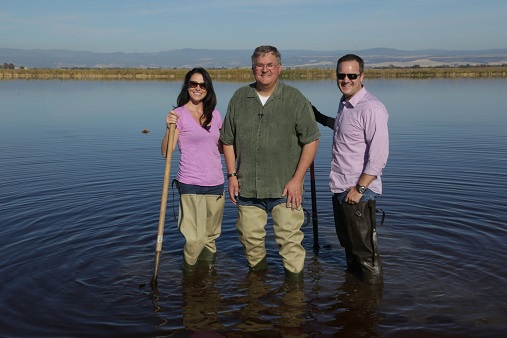 Robert Craven (right) with Stacey Gillespie of MegaFood and Bryce Lundberg of Lundberg Family Farms Robert Craven (right) with Stacey Gillespie of MegaFood and Bryce Lundberg of Lundberg Family Farms
|
|
Earlier this year, Craven announced that MegaFood would build on previous transparency goals with “The Big T” Transparency Initiative. “It’s going bigger with transparency to really drive trust,” he explains.
The initiative is multifaceted. The company has four live-feed video cameras (with six more on the way) stationed at its New Hampshire manufacturing facility. Interested retailers and consumers can view the footage online and on-site tours are welcome.
In addition, the company recently rolled out the idea to make “audit transparency.” MegaFood regularly partakes in third-party and routine site inspections by the U.S. Food and Drug Administration to ensure the facility meets and exceeds standards. “All these audits are important, but our retail partners and our consumers don’t see them,” Craven states. “Our new goal is to share the results of these audits through videos and describe what was found and was we’re doing about it.”
This approach is unique, as these types of discussions take place behind closed doors at most other companies. Says Craven, “No one scores 100% on any audit. That’s not the point. The point is to continually improve—and that will be a shock to some people.”
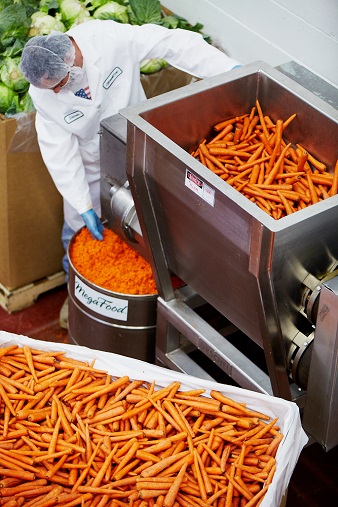 Another effort also involves spotlighting a process that is often quite secretive: new product development. “We’re going to show the world what’s coming, the new products that are in the pipeline,” he explains. The goal is to show what goes into developing a top-notch supplement. “Our average launch time is nine to 12 months…the amount of effort that goes into it is significant for a good player,” Craven states. “We want to show what the new product development process looks like.”
Another effort also involves spotlighting a process that is often quite secretive: new product development. “We’re going to show the world what’s coming, the new products that are in the pipeline,” he explains. The goal is to show what goes into developing a top-notch supplement. “Our average launch time is nine to 12 months…the amount of effort that goes into it is significant for a good player,” Craven states. “We want to show what the new product development process looks like.”
Craven isn’t stopping there. He wants to share things like town hall meetings online so retailers and consumers can understand the company’s strategies and goals.
“People want to do business with people they know and so introducing everyone to the people who run the company is important to building trust,” he states.
Uniting Around Transparency
Earlier in this piece, Craven stated, “The idea was to be a leader in the transparency movement.” Note his choice of words: “A leader.” Craven is very open about sharing the technique of trust, hoping that he can inspire others to do the same.
He also feels it is worth it to work with competitors on common initiatives, such as spearheading the launch of a new trade association, Coalition for Supplement Sustainability. The group is made up of diverse supplement makers—many of whom are competitors—that want to work together to iron out issues within this industry such as developing widely accepted standards for certifying non-GMO dietary supplements.
“Taking common issues and moving them forward is something everyone needs to do to really have a healthy industry,” Craven states.
In the end, this work speaks to what Craven is trying to get across: the more knowledge that is shared among industry members—and consumers—the bigger the win for everyone.
Published in WholeFoods Magazine November 2015


